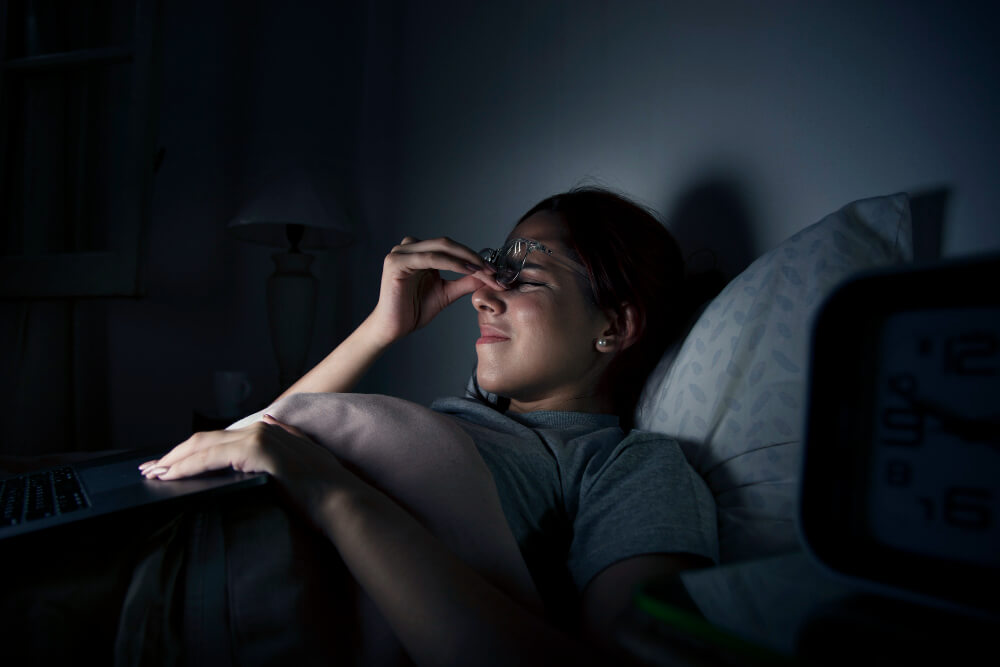Sleep Terror: A Neurological Disorder in Adults
April 25, 2024
Sleep is often thought of as a peaceful refuge from the chaos of daily life. However, for some individuals, sleep can be anything but peaceful. Imagine waking up in the dead of night, consumed by an overwhelming sense of fear and panic, with no idea of what caused such terror. This unsettling phenomenon is known as sleep terror, a neurological disorder that can affect adults as well as children.
What is Sleep Terror?
Sleep terror, also called night terror, is a type of parasomnia—a disruptive sleep disorder characterized by abnormal behaviors, movements, emotions, perceptions, and dreams that occur during sleep. Unlike nightmares, which typically involve frightening dreams that awaken the sleeper, sleep terrors are sudden episodes of intense fear that occur during non-REM (rapid eye movement) sleep.
The Experience of Sleep Terror
Imagine this scenario: You're sound asleep, blissfully unaware of the world around you when suddenly you're pushed awake by an overwhelming sense of dread. Your heart is racing, your breathing is rapid, and you're paralyzed with fear. You may scream, thrash around, or attempt to flee from an unseen threat. The terror is so vivid and intense that it feels completely real, yet upon waking fully, you have little to no memory of the episode.
Understanding the Causes
The exact cause of sleep terror is not fully understood, but several factors are believed to contribute to its development. These may include:
- Genetics: Sleep terror tends to run in families, suggesting a genetic predisposition to the disorder.
- Stress and Anxiety: High levels of stress and anxiety can disrupt sleep patterns and increase the likelihood of experiencing sleep terror.
- Sleep Deprivation: Irregular sleep schedules, insufficient sleep, and disrupted sleep patterns can trigger sleep terror episodes.
- Underlying Medical Conditions: Certain medical conditions, such as sleep apnea, restless legs syndrome, and migraines, may be associated with an increased risk of sleep terror.
- Medications: Some medications, particularly those that affect the central nervous system, may contribute to the development of sleep terror.
Managing Sleep Terror
While sleep terror can be a frightening and disruptive experience, some strategies can help manage the condition and reduce the frequency and severity of episodes. These may include:
- Establishing a Consistent Sleep Routine: Maintaining a regular sleep schedule can help regulate sleep patterns and reduce the likelihood of sleep terror.
- Creating a Relaxing Sleep Environment: Minimizing noise, light, and other distractions in the bedroom can promote restful sleep and reduce the risk of sleep disruption.
- Stress Management Techniques: Practicing relaxation techniques such as deep breathing, meditation, or yoga can help reduce stress and anxiety levels, making it easier to fall asleep and stay asleep.
- Seeking Professional Help: If sleep terror persists despite self-care measures, seeking guidance from a healthcare professional, such as a sleep specialist or neurologist, may be beneficial. They can conduct a thorough evaluation to determine the underlying cause of the sleep terror and recommend appropriate treatment options.
How Sohana Hospital Can Help
At Sohana Hospital, we understand the impact that sleep terror can have on your quality of life. Our team of experienced neurologists specializes in the diagnosis and treatment of sleep disorders, including sleep terror in adults. We offer comprehensive evaluation and personalized treatment plans created to meet your individual needs.
Our state-of-the-art sleep center is equipped with the latest technology to ensure your comfort and safety throughout the diagnostic process. From overnight sleep studies to specialized testing, we provide thorough assessments to accurately diagnose sleep terror and identify any underlying medical conditions that may be contributing to your symptoms.
Once a diagnosis is made, our team will work closely with you to develop a customized treatment plan designed to alleviate your symptoms and improve your overall sleep quality. Whether through medication management, behavioral therapy, or lifestyle modifications, we're committed to helping you achieve restful, rejuvenating sleep.
Don't let sleep terror disrupt your life any longer. Contact Sohana Hospital today to schedule a consultation with one of our sleep specialists and take the first step toward a peaceful night's sleep.
Navigating the Nightmares of Sleep Terror
Sleep terror can turn the sanctuary of sleep into a battleground of fear and confusion, but it doesn't have to control your life. By understanding the causes and triggers of sleep terror and seeking appropriate treatment and support, you can reclaim your nights and enjoy the restful sleep you deserve. Sohana Hospital is here to help you on your journey to better sleep and improved well-being.

